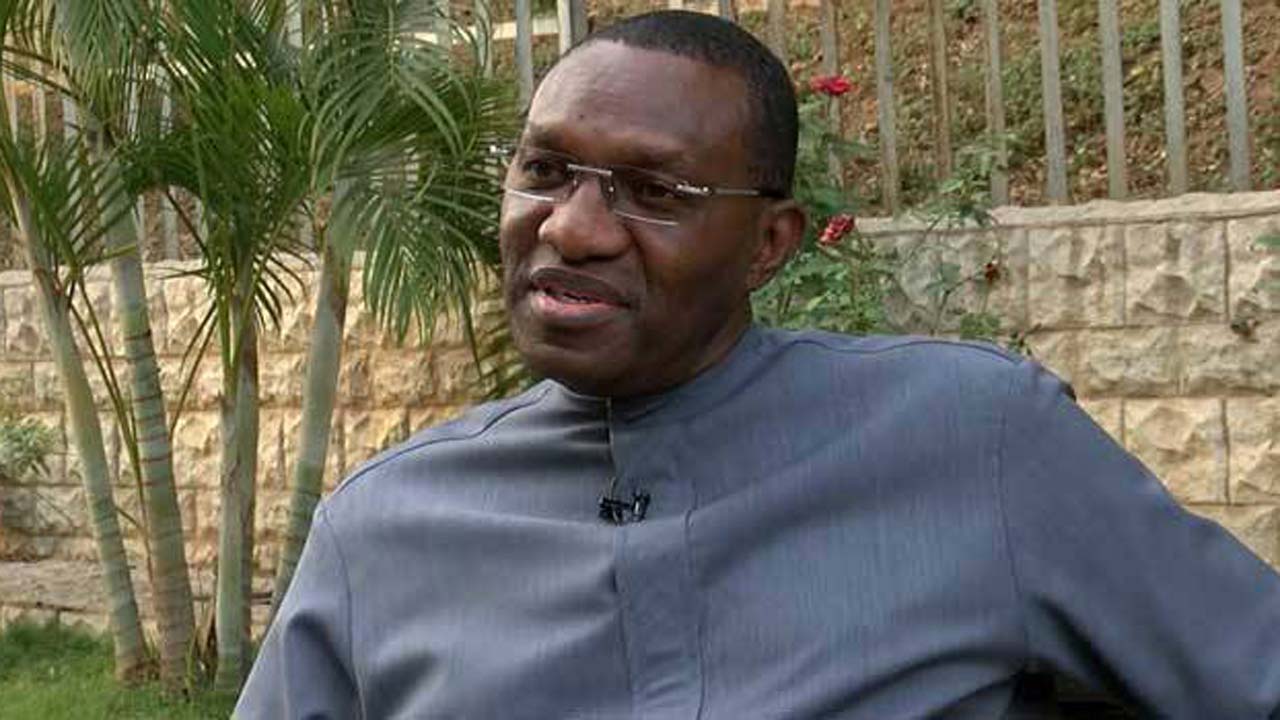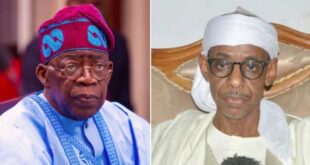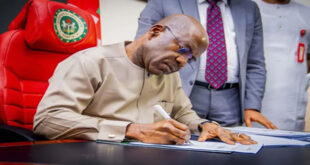Sparks are expected today when stakeholders of All Progressives Congress (APC) in Southeast meet in Awka, Anambra State, to analyse the prospects and challenges confronting the party in its resolve to win the November 6, 2021 governorship poll in the state.
The Independent National Electoral Commission (INEC) recently indicated that while the collection of forms would commence on June 10, July 1, 2021 would be the deadline for the conduct of primaries and resolution of conflicts arising from the exercise.
Perhaps, to ensure that it organises a seamless and rancour-free nomination process devoid of the mistakes of the immediate past, the APC leadership caucus of the zone convened a stakeholders’ meeting in Awka, the state capital.
Unlike its other rival opposition platform, Peoples Democratic Party (PDP), which has a plethora of billionaire aspirants, APC has a manageable number of contenders. But, apart from the number of aspirants, the party has other underlying contentious issues that could jeopardise its aspiration to “go into the election as a united family.”
The Guardian gathered that part of the talking points at the meeting, which would have all the governorship aspirants in attendance, is to look at the post mortem of the 2017 gubernatorial poll, in which the party came off as the first runner-up.
Yet, investigation revealed that there are mainly three contentious issues that have not only been pitting the aspirants among themselves, but also created fault lines within the party: The thought frame of old members that have contested various elective offices, especially the governorship, gladiators, who feel that with their high connections, they can pull strings, including the federal might, to win elections and those, who though just joined the party, command requisite capacity to win election based on grassroots following and popular support.
Stakeholders’ worry
ALL said, what the stakeholders might encounter as source of their greatest headache is the plan to adopt workable parametres to produce a generally acceptable consensus candidate as the party’s standard-bearer for the gubernatorial contest.
Experience of the 2017 attempt shows that no set of parametres for the consensus option would be acceptable to aspirants, especially given the fact that almost all of them have received assurances and gone into bargains with entrenched political interest. Most of the aspirants confided in The Guardian that nothing short of a credible primary would serve the party’s collective desire to prosecute the electoral battle as a common front.
It could be recalled that in the build up to the 2017 governorship election in the state, the APC national leadership under Chief John Odigie Oyegun, set up the Senator Jim Nwobodo committee to moderate the ambitions of aspirants and commit them to amicably resolve to identify with one of them.
Inspite of several meetings by the committee and Orji Uzor Kalu’s boast that the aspirants have pledged to work together for the emergence of a consensus candidate, all 12 aspirants, save Dr. Chike Obidigbo, went into a hotly contested and contentious primary that threw up Hon. Tony Nwoye, amid allegations of substitution of authentic delegates.
However, unlike the 2017 instance, only nine aspirants have so far indicated visible interest to seek the APC ticket. The stakeholders meeting therefore, could be a timely intervention by the Southeast leaders to ensure that they trim down the number of aspirants before they begin to waste funds on campaigns and purchase of forms.
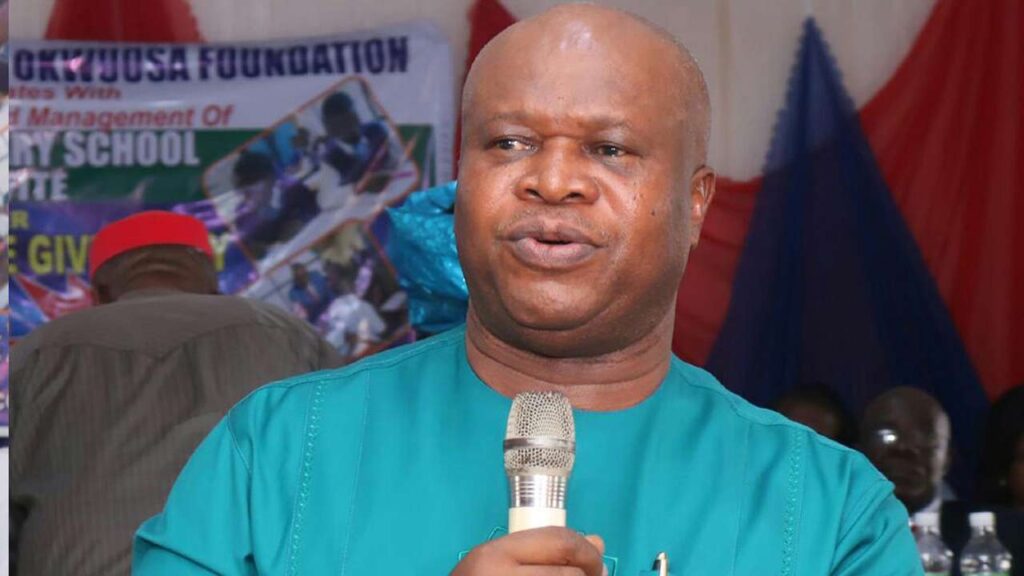
Of the nine aspirants, four are first time aspirants, including Dr. Chidozie Nwankwo, JohnBosco Onunkwo and Sir Azuka Okwuosa. They have been going round the 177 towns and 21 local government areas of the state, notifying citizens of their interest to run on the APC platform. Conversely, the old-timers, like Dr. Andy Ubah, Dr. George Moghalu and Nwoye, have been announcing their ambition through proxies and groups.
Feasibility of consensus
THE three broad issues and those canvassing them leave the impression that, desirable as the effort is, it would be hard to achieve consensus. If the stakeholders would lay hands on the details contained in the report of the fact-finding committee set up to probe what transpied in the 2017 exercise, the much they could do is appeal to the conscience of the aspirants to opt out or as happened during the Nwobodo committee assess the candidates based on two critical considerations, namely acceptability and ability to match the financial capabilities of the outgoing governor’s preferred candidate and Peoples Democratic Party (PDP) standard bearer to fund the election.
The chairman of the fact finding committee, Sir Azuka Okwuosa, who happens to be among the aspirants, said although his committee’s findings were not made public issue for general consumption, the party was already taking care of certain things that happened.
He stated: “On a general note, I can tell you that there were issues and we have been able to determine where things really went wrong. It was like a postmortem and the purpose was to prevent a similar occurrence in future. So, we have been able to take care of what we saw there.”
Okwuosa said the post mortem helped to rekindle confidence in the party, stressing, “that is why most people are glad and willing to contest for the governorship ticket under the APC.”
He said there is no doubt that the many aspirants are all qualified, noting that anybody who decided to come out to vie for governorship election did not do it overnight as the person must have looked at certain things before jumping out.
On the strength of that assertion, it would be seen at the end of today’s deliberations how the party’s stakeholders led by Governor Hope Uzodimma of Imo State would navigate through that narrow strait.
Split on modalities
THE major knot that the stakeholders’ meeting would seek to untangle is what modality to adopt in choosing the APC candidate for Anambra governorship poll. While supporters of former aspirants believe that there should be reward for loyalty, those on the side of the fresh faces insist that the party should be guided by general acceptability and ability to win the election.
But, some party faithful are of the opinion that since the party’s membership registration would have been concluded before the governorship primary, it would be better to select the standard bearer through an all inclusive direct method.
Checks by The Guardian reveal that based on confidence in their ability to win, the new entrants to the party prefer the direct or delegate primary to the consensus option.
One of the aspirants, Dr. Chidozie Nwankwo, told The Guardian that those who favour consensus do not exceed 10 percent, contending that the proponents are those who believe that all they need to win is federal might and their ability to manipulate the processes.
Also, speaking when he visited the party’s state Secretariat in Awka, Okwuosa said time has gone when candidates are imposed on the party, remarking that the anti-party activities and betrayal that happen during elections are evident animosity against imposition.
Speaking on the occasion, the state chairman, Chief Basil Ejidike, told party faithful that experience of the 2017 governorship dictates that only a candidate nominated by members would be the APC governorship standard-bearer. He decried the situation whereby candidates were imposed on the party, stressing that it was such developments that provide opportunity for rival aspirants to betray the party by working at cross purposes.
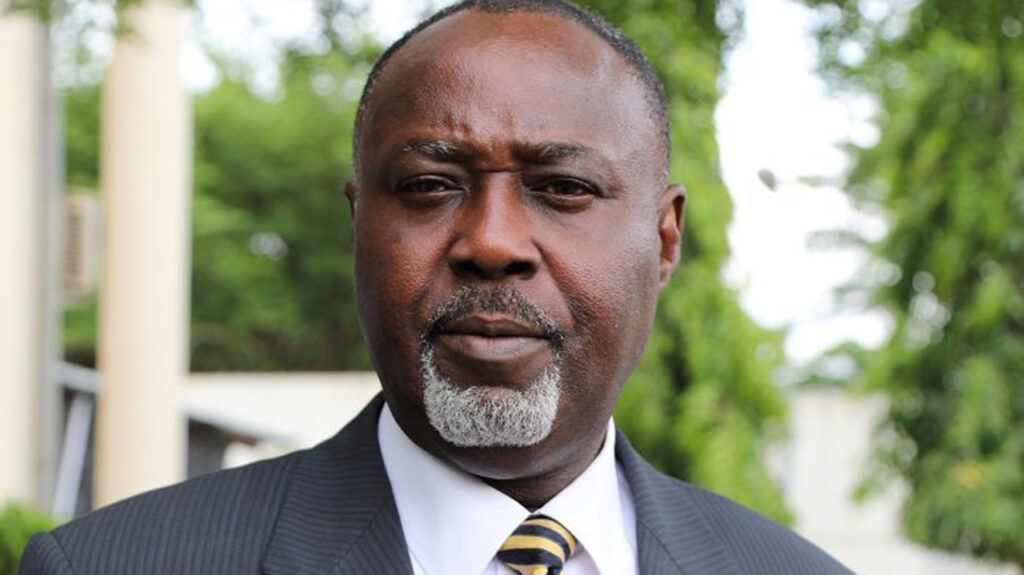
Ejidike said APC in Anambra State has decided to put the ugly experiences of the past behind it, noting that the time is long gone, when candidates that are unknown to the members are imported from outside to stand for election.
Other party faithful, like Ebere Obi and the party secretary, Chidi Agupugo declared that contrary to insinuations in some quarters, the APC governorship candidate for the November poll would not be made in Abuja.
But, in a telephone chat with The Guardian, the Managing Director of Nigeria Inland Waterways Authority (NIWA), Dr. George Moghalu, said nobody should lose sight of the fact that the party reserves the right to consider integrity, loyalty and ability to subsume personal interest for the collective good in choosing its representatives.
Moghalu, who was prevailed upon to step aside in the 2017 poll for zoning considerations, said those who have paid dues in opposition deserve mention and not to be dismissed with a wave of the hand. On speculations that he is among those being penciled as consensus candidate, Moghalu said consensus usually follow consultations and agreements.
While Moghalu’s name is being associated with possible consensus consideration, word making the rounds in Awka is that as brother Senators in the 8th Senate, the Imo State governor is inclined towards returning Senator Andy Uba.
“The overall idea of respecting zoning was because of Igwebuike (Andy Uba), apart from the fact that he accepted the pleas from APC national leaders not to challenge the outcome of the 2017 primary, he quietly left office as governor in 2007, even though he was not joined in the case instituted by Governor Peter Obi at the Supreme Court,” the source hinted.
As the state capital gets charged for the much talked about stakeholders meeting, supporters of Dr. Chidozie Nwankwo have stepped up their campaign, stressing that the WICHTECH boss has mobilised support for APC in the state more than any aspirants.
The coordinator of Anambra North Front, Evang. Uzo told The Guardian, “although new member to APC, Nwankwo is a high networth personality whose entrepreneurial fruitfulness has been proven by his rag to riches testimony in his business.”
As Southeast stakeholders troubleshoot in Awka, whether APC would settle for a unity candidate, otherwise called consensus candidate or set the ball rolling for an all-comers direct or delegate primary would show how far the party has healed from its loss in 2017.
 Gistfox Your News Window To The World
Gistfox Your News Window To The World 
